Language
CHENGDU MESKERNEL INTEGRATED TECHNOLOGY CO.,LTD
[Sichuan,China]
Business Type:Manufacturer Main Markets: Americas , Asia , East Europe , Europe , Middle East , North Europe , Worldwide , Other Markets , West Europe Exporter:61% - 70% Certs:ISO14001, ISO9001, OHSAS18001, CE, EMC, FCC, RoHS, FDA Description:Long Distance Measure Service,Ip54 Laser Distance Sensors,Laser Distance Measurement
